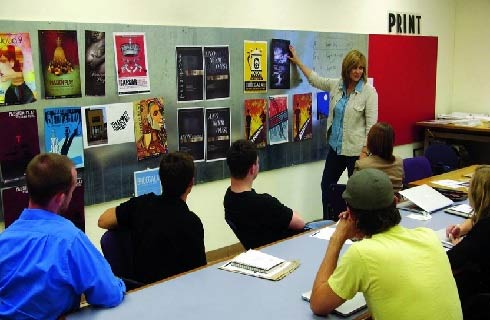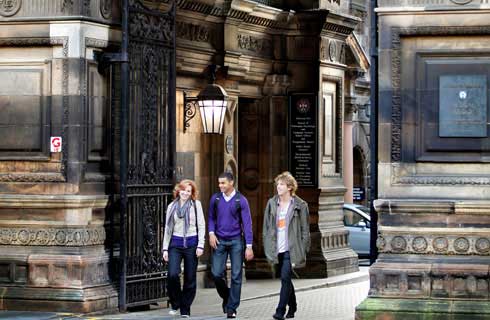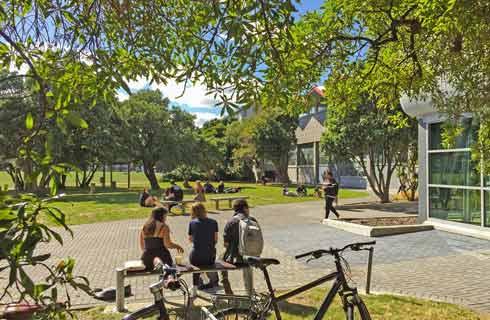历史文学学士-公共和应用历史
Bachelor of Arts in History - Public and Applied History

学历文凭
Bachelor Degree

专业院系
Department of History

开学时间

课程时长

课程学费

国际学生入学条件
Submit your transcripts in English from all secondary schools/high schools attended. Full transcripts from each individual school year must be provided.
Submit official transcripts showing all work in detail. If you have completed any courses at the college or university level.
Obtain certified English translations of all documents not presented in English.
All documents submitted for admission become property of the University and will not be returned.
Submit a letter of recommendation with your application.
TOEFL: Non-native English speakers must take the Test of English as a Foreign Language (TOEFL) given by the Educational Testing Service and arrange for scores to be sent to the Office of Admission. (LMU's TOEFL Institution code is 4403) The University's minimum standard for undergraduate admission is 90 for the Internet-based TOEFL.
IELTS: As an alternative to taking the TOEFL, non-native English speakers may also take the International English Language Testing System (IELTS).The University's minimum standard for undergraduate admission is 6.5.
Submit official transcripts showing all work in detail. If you have completed any courses at the college or university level.
Obtain certified English translations of all documents not presented in English.
All documents submitted for admission become property of the University and will not be returned.
Submit a letter of recommendation with your application.
TOEFL: Non-native English speakers must take the Test of English as a Foreign Language (TOEFL) given by the Educational Testing Service and arrange for scores to be sent to the Office of Admission. (LMU's TOEFL Institution code is 4403) The University's minimum standard for undergraduate admission is 90 for the Internet-based TOEFL.
IELTS: As an alternative to taking the TOEFL, non-native English speakers may also take the International English Language Testing System (IELTS).The University's minimum standard for undergraduate admission is 6.5.
IDP—雅思考试联合主办方

雅思考试总分
6.5
- 雅思总分:6.5
- 托福网考总分:90
- 托福笔试总分:160
- 其他语言考试:Duolingo English Test -The University's minimum standard for undergraduate admission is 120.
CRICOS代码:
申请截止日期: 请与IDP联系 以获取详细信息。
课程简介
学生将专注于公共历史的辩论,包括公共领域的历史,记忆,纪念和身份问题,以及与公共历史叙述的呈现有关的问题(例如,在教科书,博物馆,在线中)。学生还将在公共历史实践中运用他们的历史分析技能,例如通过策划博物馆展览,创建公共历史网站或博客和/或通过在博物馆和档案馆进行实习。通过这样做,学生将运用历史知识来解决与当代相关的问题,并将向学术界以外的人展示历史思维对于理解当代世界中问题的重要性以及历史作为连续过程的本质。重新解释。
Students will focus on debates in public history, including questions of history, memory, commemoration, and identity in the public sphere, as well as issues related to the presentation of public narratives of history (e.g., in textbooks, museums, online). Students will also apply their skills of historical analysis on the practice of public history e.g., by curating museum exhibits, by creating public history websites or blogs, and/or by interning in museums and archives. In doing so, students will apply historical knowledge to address issues of contemporary relevance and will demonstrate, to those outside of academia, the importance of historical thinking for understanding issues in the contemporary world, as well as the nature of history as a process of continual re-interpretation.
Students will focus on debates in public history, including questions of history, memory, commemoration, and identity in the public sphere, as well as issues related to the presentation of public narratives of history (e.g., in textbooks, museums, online). Students will also apply their skills of historical analysis on the practice of public history e.g., by curating museum exhibits, by creating public history websites or blogs, and/or by interning in museums and archives. In doing so, students will apply historical knowledge to address issues of contemporary relevance and will demonstrate, to those outside of academia, the importance of historical thinking for understanding issues in the contemporary world, as well as the nature of history as a process of continual re-interpretation.
相关申请
 预科
预科 奖学金
奖学金 实习机会
实习机会 在校学习
在校学习 跨境学习
跨境学习 校园授课-线上开始
校园授课-线上开始 在线/远程学习
在线/远程学习
开学时间&学费
学费信息仅供参考,请与IDP联系以获取详细信息
| 开学时间 | 时长 | 学费 | 地点 |
|---|
本校相关课程

亚洲及太平洋研究文学学士学位
学历文凭
Bachelor Degree
开学日期
课程费用总额


Chicana / o和Latina / o研究文学士
学历文凭
Bachelor Degree
开学日期
课程费用总额


古典与考古学学士学位
学历文凭
Bachelor Degree
开学日期
课程费用总额


经济学文学学士
学历文凭
Bachelor Degree
开学日期
课程费用总额


英语文学学士
学历文凭
Bachelor Degree
开学日期
课程费用总额


历史文学学士-通才课程
学历文凭
Bachelor Degree
开学日期
课程费用总额

其他相关课程

Doctor of Philosophy in History
 滑铁卢大学
滑铁卢大学学历文凭
Ph.D.
开学日期
课程费用总额


Master of Arts in History
 滑铁卢大学
滑铁卢大学学历文凭
Masters Degree
开学日期
课程费用总额


历史文学士[一般]
 滑铁卢大学
滑铁卢大学学历文凭
Bachelor Degree
开学日期
课程费用总额


历史文学硕士(论文流)
 劳伦森大学
劳伦森大学学历文凭
Masters Degree
开学日期
课程费用总额


历史文学士学位(3年)
 劳伦森大学
劳伦森大学学历文凭
Bachelor Degree
开学日期
课程费用总额


历史哲学博士
 达尔豪斯大学
达尔豪斯大学学历文凭
Ph.D.
开学日期
课程费用总额










 美国
美国
